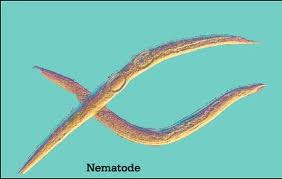The secret of the fabled fountain of youth that is searched by many people could lie with the creepy-crawly creatures in our garden, the nematodes (roundworms).
The secret to anti-aging, according to new research from San Francisco, could lie with roundworms.
Biochemist Cynthia Kenyon and her team have managed to prolong the life of roundworms six-fold at the Hillblom Center for the Biology of Aging.
Under the microscope, roundworms have had their lifespan increased six-fold by scientists in San Franciscio by manipulating a gene they share with humans.
The tiny roundworm has an exceptionally short lifespan; elderly at 10 days and dead within two weeks.
But Kenyon’s team have slowed the species’ aging process and bred roundworms to the age of 84 days.
The biochemist reveals her research in a presentation at the Technology, Entertainment and Design (TED) conference in Edinburgh.
‘You have something you never thought was possible,’ Kenyon said.
‘These worms should be dead, a long time ago. But they’re not dead. They’re moving.
They’re young.’
They did it by manipulating one particular gene in its DNA, known as daf-2.
The same gene is present in humans and people who live to 100 tend to exhibit mutations to the gene, said Kenyon at the (TED) conference in Edinburgh.
Mutations to the daf-2 gene would help to explain why different animals have such significantly differing lifespans.
While the roundworm is dead inside a fortnight and the mayfly inside a day, tortoises can live for up to 188 years and koi fish can live to 200.
As a result of the research, Kenyon claimed that youth-boosting drugs could be available within 15 years.
